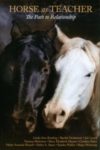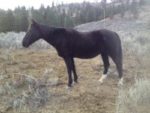Archive for the ‘Horses Health’ Category
Flower Essences can offer Emotional Balance for You & Your Horse …
Note from Faye: Here is another great article from Zoe Dodds about Flower Essences for Horses. I love reading her blog… Enjoy!!
Flower Essences can offer Emotional Balance for You & Your Horse …
By Zoe Dodds
 Flower essences have a special place in my heart because of their ability to influence our emotional and spiritual wellbeing. I find horses very receptive to flower essences and will usually recommend both horse and rider take them together when seeking to balance any behavioural or emotional issues. This is because very often our horses will mirror or reflect any imbalances or problems we are working on, with both issues we are aware of, and issues we are not.
Flower essences have a special place in my heart because of their ability to influence our emotional and spiritual wellbeing. I find horses very receptive to flower essences and will usually recommend both horse and rider take them together when seeking to balance any behavioural or emotional issues. This is because very often our horses will mirror or reflect any imbalances or problems we are working on, with both issues we are aware of, and issues we are not.
Dr Edward Bach, an inspirational physician and homeopath, developed flowerremedies in the late 1920’s and early 1930’s. Today these remedies are used throughout the world and are widely acknowledged for their gentle yet profound qualities. Read the rest of this entry »
The Difference between Holistic Herbal Medicine for Horses & Western Medicine
Note from Faye: This article does a great job of describing and summing up why we prefer to choose Herbal (or ‘natural’) medicine over Western (or ‘traditional’) medicine whenever possible. That is not to say Western medicine does not have it’s place, rather that we, whenever possible choose to treat our horses with natural, holistic and non-invasive methods ...
By: Zoe Dodds
Herbal Medicine uses remedies derived from plants to treat common illnesses. These herbs are dietary supplements that you can give to your horse in its raw form or dried, through teas (infusions), extracts, tinctures and oils or as part of a combined remedy. Herbal Medicine aims to not only treat the symptoms but to introduce improvements to your horse’s lifestyle and wellbeing.
horse in its raw form or dried, through teas (infusions), extracts, tinctures and oils or as part of a combined remedy. Herbal Medicine aims to not only treat the symptoms but to introduce improvements to your horse’s lifestyle and wellbeing.
Herbs have been used on people and animals for thousands of years across a range of cultures. Shamans, Medicine men and women, pharaohs, kings and field workers all knew the benefits of herbs on their people and animals. Some of the more common cultures to have used herbs on their horses were the native american indian tribes, the ancient greeks and the romany gypsies of Europe. Horses also have instinctively foraged on medicinal plants native to their grasslands gaining the necessary nutrition to heal and prevent illness.
Modern medicine is in fact foundered from the use and experimentation of thousands of years of herbal medicine knowledge. Veterinarian science and the development of pharmaceuticals has evolved directly from the accumulated wisdom of herbal history that has greatly benefited western medicine as we know it today.
So how do herbs work and how can we use them safely on our horses in the context of our modern world? Read the rest of this entry »
Herbal Remedies for Horses
Most people think that herbal remedies are limited to humans alone. But horses also benefit from Naturopathy, or herbal medicine. This article specifically focuses on a range of herbal remedies for equines.
Many horse owners feel the need to resort to herbal remedies that do not hamper a horse from competing in the show ring, or being active and drug-free.
Horses have health concerns that are similar to human health issues, yet they have a different system, which requires a different approach to naturopathy than one would take with a human being. Read the rest of this entry »
Not All Pain is the Same- Part 2
By Madalyn Ward, DVM
Sometimes diagnosing our horses’ pain can be a pain in the you-know-what! Our horses don’t speak English, and they can’t tell us exactly what hurts or why. That’s why understanding the different kinds of pain, especially from a Traditional Chinese Medicine (TCM) point of view, can be so valuable.
This information can be difficult to digest at first, but you’ll find that in time you will be able to distinguish one kind of pain from another based on your horse’s symptoms. In last month’s newsletter I covered excess pain conditions, and this month I review deficiency pain conditions. Read the rest of this entry »
Not All Pain is the Same
Madalyn Ward, DVM
None of us want our horses to be in pain. Horses can’t tell us in words what hurts, but they do communicate to us with their body posture and behavior. Acute pain, such as colic or injury, is pretty straightforward to understand and treat, but chronic pain in the musculoskeletal system is more of a challenge.
There is a tendency in conventional medicine to treat all pain in the same way, by reaching for steroids or non-steroidal anti-inflammatory drugs (NSAIDs). These products have a place in treating acute injuries, but their side effects limit their use for chronic pain. Chronic pain is almost always related to a systemic imbalance, and needs to be approached in a way that addresses both the immediate pain and the underlying cause. Read the rest of this entry »
SEPTEMBER- Revisiting Holistic HorseCare
A Note from Faye: Well, September is upon us…which also means that Fall is rapidly approaching! So this month we will once again focus on Holistic Horse Care & Natural & Herbal remedies for our horses. The colder weather brings with it a host of health issues, but instead of rushing out and buying a ‘traditional’ (possibly toxic!) treatment, first explore the possibility that there may be a natural remedy that will not only cure what ails your horse, but also support his immune system and treat the horse as a whole being instead of merely treating symptoms!
FOOD ALLERGIES & SENSITIVITES IN HORSES
By: Madalyn Ward, DVM (www.holistichorsekeeping.com)
Normally when we think of allergies, symptoms like a runny nose or cough come to mind. A horse owner may more quickly think of the horrible skin itch that occurs with sweet itch, the allergy to culicoides gnats. But not all allergies have such obvious symptoms. Read the rest of this entry »
The Dont’s of Parasite Control: part 2
The following article is an excerpt from Marijke’s new book ‘Healing Horses their Way’. This wonderful book is available at www.rivasremedies.com
The Dont’s of Parasite Control
By Marijke van de Water, B.Sc., DHMS.
What NOT to Do:
DONT contribute to the parasite mutation problem and the toxic chemical overload by overmedicating. If you must chemically de-worm, keep it to the absolute minimum determined by the fecals and treat your horse with pro-biotics and herbal liver support for one to two weeks after.
DONT chemically de-worm horses that don’t have a parasite problem- this is not appropriate or sensible prevention. Read the rest of this entry »
The Do’s of Parasite Control
The following article is an excert from Marijke’s new book ‘Healing Horses their Way’.
This wonderful book is available at www.rivasremedies.com
The Do’s of Parasite Control
By Marijke van de Water, B.Sc., DHMS.
What to DO:
DO perform fecal egg counts to determine who needs treatment, what programs are effective and which horses in the herd need the most attention.
Egg counts are the only way to determine if what you’re doing is working. These tests can be done at most veterinarian clinics or through do-it-yourselves kits.
Regular testing will bring more accurate results since Read the rest of this entry »
COLIC- The 2 differrent types
COLIC
By Marikje van de Water, B.Sc., DHMS.
Colic is the number one cause of death in horses. The majority of colic cases are caused by either a build up of gas or by impactions in the hindgut.
Affected horses exhibit symptoms that include pawing, sweating, passing small amounts of stool, looking at, or kicking at their abdomen and wanting to lie down or roll. Read the rest of this entry »
PICA: Wood Chewing & Dirt Licking- Vice or Nutritient Deficiency?
By Marikje van de Water, B.Sc., DHMS.
Don’t confuse cribbing with wood chewing. Some horse can be observed chewing or eating wood, licking dirt, or nibbling on the tails of pasture mates. This behaviour is best known as pica- an appetite for non-nutritive substances.
In most cases , the horses that engage in pica are looking for one or more minerals that are either not supplied in their feeding program or are unavailable in their immediate forage area.
Minerals are required for a number of body functions. For example, Read the rest of this entry »


